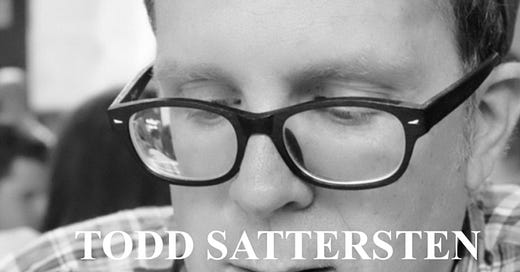Released in 2013, “The One Thing: The Surprisingly Simple Truth Behind Extraordinary Results,” a book that’s helped millions of readers over the years focus on what matters most in their personal and work lives, is one of my all-time favorites. Capturing the essence of its narrative, it famously poses the question:
“What’s the ONE Thing you can do this week such that by doing it everything else would be easier or unnecessary?”
Either by intention or a twist of fate, “The One Thing” was published by Portland, Oregon-based Bard Press, which ironically releases only one book a year
According to publisher Todd Sattersten, Bard Press was founded in 1995 by Ray Bard, who had written several books in the training space along with collaborating with publishers as a packager. His aim in building the publishing company was to build a stronger brand around the work he was doing with authors.
Todd says that what’s remarkable about a book publisher like Bard Press is the success the company has had with a relatively small number of titles. He cites for example the Little Red Book of Selling by Jeffrey Gitomer, which is the best-selling sales book of all time with over two million copies sold.
And then there is the aforementioned The ONE Thing by Gary Keller and Jay Papasan is the leading book on focus and priorities with over 2.6 million copies sold along with having been translated into 40 languages.
For this interview, Todd was asked about his own life journey and how its informed his work as Deputy Publisher and now Publisher of Bard Press:
“My path to becoming a business book publisher is pretty non-traditional. I trained as a mechanical engineer and was hired by General Electric out of college. I spent the next decade in manufacturing and operations, which is a great background for the print and distribution side of publishing.”
Since entering the book publishing field in 2004, Todd has worked in almost every part of the industry.
“I started in specialty bookselling at 800-CEO-READ (now Porchlight Books). I also co-authored a book titled The 100 Best Business Books of All Time with Jack Covert, which was published by Penguin Random House. I sold books as an agent. I’ve worked as an editor and a marketer on books. I even had a foreign rights scouting business where I worked with publishers in Spain, Germany, and Brazil.”
Before joining Bard, Todd worked with an author named Gene Kim as his business manager at IT Revolution.
“We built a book publishing company, speaking business, and an events business in the enterprise technology space. We sold 600,000 copies of his books (The Phoenix Project and The DevOps Handbook). There was even a boutique research company that Google bought.”
He says that this variety of experiences prepared him for his current role as publisher at Bard Press.
Asked about the major factors that distinguish Bard Press from other book publishers, Todd says that Bard Press publishes books at the intersection of business and personal development.
“Our titles help people at work and in life. We really think hard about the reader and labor to make books that will help them solve big problems.”
The primary factor that distinguishes Bard Press, says Todd, is that…..
“…..we only publish one book per year. That one decision creates a number of unique opportunities. That selectiveness lets us focus on each title we publish—focus on development, focus on the launch, and stay focused after the book is published. This approach also gets the attention of our retail and distribution partners when we say, “This is the one book coming out from Bard Press this year.”
He believes that an intense focus on a smaller number of titles creates greater success for our books in the long run.
In terms of emerging trends that are currently impacting the book publishing industry, Todd offered this
“I am keeping an eye on physical retail and how it continues to change and evolve. Amazon is the biggest player in the business and self-help categories. Airport bookstores continue to be important for introducing titles, but air travel is so difficult right now that it is impacting those spaces. Indies are doing better, but they largely stay away from business. The question under all of this is thinking about how the book discovery process will continue to change for readers.”
He adds that the audiobook market is interesting and continues to grow. The trouble here, he suggests, is the dominance of a single player in Audible and how severely it impacts the ability to publish profitably in the audiobook space.
One additional trend he’s trying to stay on top of are products or services that exist to support the concepts and ideas in a book. Says Todd:
“Since Bard publishes how-to books, I’ve been thinking about what other things would help people implement those ideas. Notebooks and planners have been a big growth category over the last five years. Informational card decks are a new and growing space. There have been experiments with apps to support practice and learning. I wonder how a portfolio of products can give a book a strong presence in the marketplace.”
Concluding, I asked Todd what his greatest hope and vision for Bard Press is over the next 3-5 years. He offered this:
“My greatest hope is that we get to continue to work with great authors and help them grow their businesses and amplify their ideas. I want Bard to continue to publish books that help people solve the problems that keep them from the life they want to lead.
And for me, I am at the start of a 20-year journey to continue the legacy that Ray started at Bard Press.”




